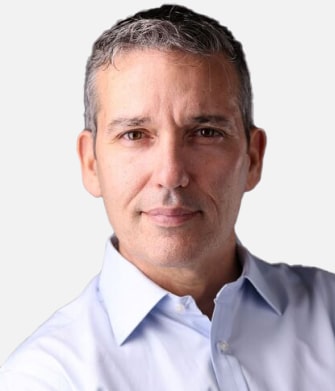For many young people, thinking about the future can be stressful, especially if they have grown up in poverty or with uneducated parents. A surprising number of children and adolescents are unaware of the career opportunities available to them.
Think Big for Kids is changing that, on a national scale. Its impact begins in middle school, with a three-pillar program. The first pillar, career exploration, introduces students in sixth through eighth grade to a variety of careers. They meet industry representatives from fields such as technology, health care, business, plumbing and air conditioning. They also participate in field trips and workshops highlighting different career paths.
The goal of career exploration is twofold: to help students identify career options that interest them, and to give them a clear understanding of what it takes to succeed in those fields. Think Big for Kids founder Tony DiBenedetto and his team have seen firsthand how early exposure to career choices leads to preparedness and success. Waiting until high school, DiBenedetto says, is often too late.
The second pillar, mentorship, begins in high school. After exploring careers, students choose an industry that appeals to them and are matched with a mentor who shares their aspirations and experiences. Through his career, DiBenedetto recognized the invaluable role of mentorship. Think Big for Kids’ mentors encourage and support students, offering meaningful guidance. Meeting at least once a month, mentors help students stay accountable for their academic and career goals. Together, they create post-high school plans discussing college, trade programs and the military. Mentors commit to at least a year, but many relationships last far longer.
Mentorship leads to the third pillar: job readiness and placement. Think Big for Kids goes the extra mile to help students pursue their chosen careers, offering skills development, scholarships and internship opportunities. It even covers transportation costs, such as Uber rides, to ensure students arrive at their internships on time. The organization also guides students through secondary education programs, whether it’s a college degree or a trade certification. Once students complete the necessary training, Think Big for Kids helps them secure employment.
Believing in students can make a world of difference—this is the core of Think Big for Kids’ philosophy. Many of the organization’s students have struggled with insecurity and doubt, believing they are not capable of achieving their dreams. The Think Big for Kids team makes it clear, from day one, that they are dedicated to each student’s success, even when others are not. They support students throughout their educational journey and help them find a place in the workforce.
DiBenedetto, and his team, understand the impact of believing in young people. When students gain confidence, they recognize that hard work can open doors. Encouraging them to pursue their passions helps break the cycle of poverty and creates lasting change for future generations. Think Big for Kids’ ultimate goal is to remove barriers and help students of all backgrounds excel professionally.

“Think Big’s mission is to break the cycle of poverty by preparing kids for the workforce. Over 40% of families in the U.S.—including in the Tampa Bay area—struggle to meet basic needs. If you’re focused on just trying to pay your bills and put food on the table, it doesn’t leave much room to think about your child’s education and future,” DiBenedetto says. “We are providing education and opportunities to kids right here, in our backyard. Think Big has hundreds of volunteers, mentors, donors and partner companies across Tampa Bay, and in other regions, working tirelessly to help young people find their passion, develop a career plan and earn a livable wage. It’s a win for the community and local businesses. We are building a pipeline of great talent.”
The nonprofit has exciting projects underway including a mobile app that will provide students with on-the-go access to educational and career resources. Think Big for Kids has also launched a podcast, Think Bigger Voices, offering a platform to discuss poverty openly and honestly. “We’re highlighting other nonprofits, thought leaders and success stories—the people who are doing good work and providing solutions,” says Amy Alley, executive director of Think Big for Kids. These discussions help students understand the root causes of poverty and explore ways to overcome financial challenges.

Think Big for Kids’ influence is growing, changing lives nationwide. Founded in Tampa in 2017, the organization now operates in other regions such as Chicago, Atlanta, Dallas, Greater Washington, D.C., and New Jersey. It partners with Boys & Girls Clubs, after-school programs, nonprofits and charter schools to reach students who could benefit from its services. Since its launch, Think Big for Kids has worked with 7,000 young people and aims to reach 10,000 by the end of 2025. Many alumni have built successful careers thanks to the program’s efforts, inspiring the organization to continue its mission of ending poverty—one student at a time.
